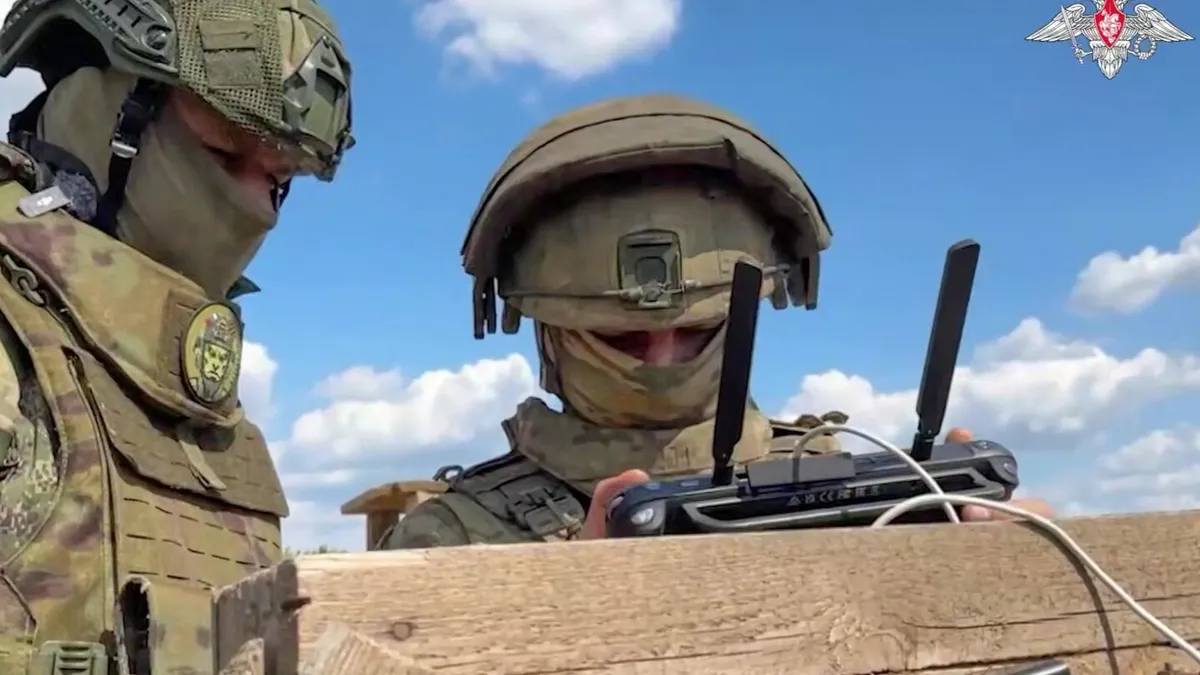
In a significant escalation of the ongoing conflict, Russia launched its largest drone attack on Ukraine during the more than three-year war, as reported by Ukrainian officials on Monday. This aggressive military action comes at a time when U.S. efforts are underway to broker peace between the two nations. Former President Donald Trump expressed his concerns, stating that Russian President Vladimir Putin has "gone crazy" by intensifying the bombing of Ukraine.
The drone bombardment on Sunday night involved a staggering total of 355 drones, as confirmed by Yuriy Ihnat, the head of the Ukrainian air force’s communications department. This attack followed a previous night during which Russia fired 298 drones and 69 missiles at Ukraine, marking what many Ukrainians termed as the largest combined aerial assault since the conflict began. Over the course of just three days, from Friday to Sunday, Russian forces launched approximately 900 drones at Ukrainian targets.
This escalation appears to undermine hopes that Trump’s peace initiatives could lead to a breakthrough in the near future. Observers note that Putin seems resolute in his ambition to capture more territory in Ukraine and inflict greater damage. Notably, this month alone, Russia has broken its record for aerial bombardments of Ukraine three times, indicating a significant intensification of their military campaign.
The recent surge in Russian airstrikes follows Kyiv's acceptance of an unconditional 30-day ceasefire proposed by the U.S. in March, a proposal that Moscow effectively rejected. According to military analysts and Ukrainian officials, Russia is currently reinforcing its positions along the extensive 1,000-kilometer (620-mile) front line, preparing for a potential summer offensive.
In response to the ongoing attacks, Ukrainian President Volodymyr Zelenskyy took to Telegram, stating, “Only a sense of complete impunity can allow Russia to carry out such attacks and continually escalate their scale.” He emphasized the absence of significant military logic behind these actions but acknowledged their profound political implications. Zelenskyy reiterated his call for more stringent international economic sanctions on Russia, arguing that the nation's "desire to fight must be deprived of resources."
The European Union’s top diplomat, foreign policy chief Kaja Kallas, condemned the recent attacks on Kyiv as “totally appalling,” announcing that the EU intends to impose further sanctions on Russia. While Trump has threatened severe sanctions against Moscow, he has yet to take concrete action. Kremlin spokesman Dmitry Peskov defended Putin's actions, claiming they are necessary for Russia’s security and serve as a response to Ukraine's deep strikes.
Trump has expressed growing impatience with Putin, stating, “I’ve always had a very good relationship with Vladimir Putin, but something has happened to him. He has gone absolutely CRAZY!” He condemned the violence against Ukrainian cities, remarking that "missiles and drones are being shot into Cities in Ukraine, for no reason whatsoever." Trump warned that if Putin aims to conquer all of Ukraine, it would ultimately lead to the downfall of Russia.
In a rare instance of cooperation between the two nations, Russia and Ukraine conducted a significant prisoner swap on Sunday, exchanging 303 soldiers each. This was part of a series of exchanges that included 307 combatants and civilians on Saturday and 390 on Friday, culminating in the largest total swap documented in the war. Earlier this month, during talks held in Istanbul, Kyiv and Moscow had agreed to exchange 1,000 prisoners of war and civilian detainees each, marking the only tangible outcome from recent negotiations.
As the situation evolves, the international community watches closely, with ongoing discussions about how to effectively address the escalating conflict and its humanitarian implications.